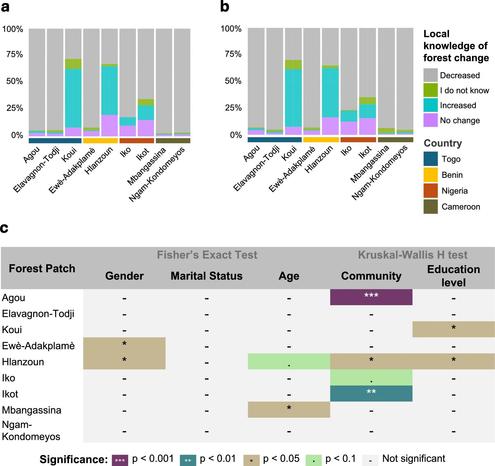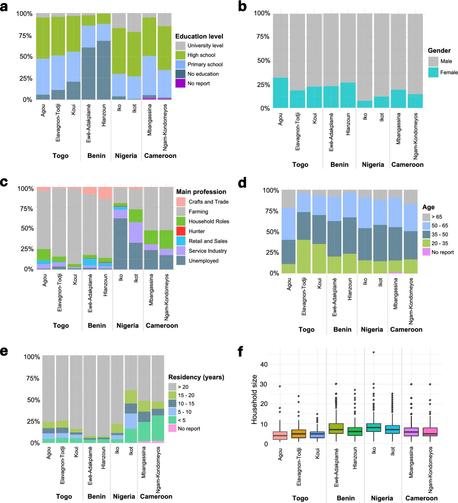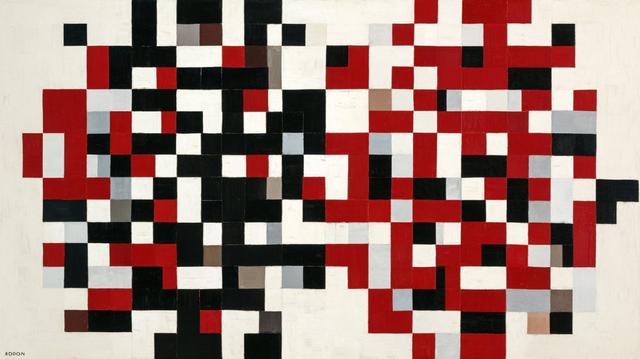Climate change and health: what the Lancet Countdown says about the value and significance of local knowledge and action
Here is everything that the new Lancet Countdown says about the value and significance of indigenous and other forms of local knowledge, as well as their value for community-led action to respond to the impacts of climate change on health.
Why does this matter? Read our article: How the Lancet Countdown illuminates a new path to climate-resilient health systems
On the value of community-led action and the significance of local knowledge
Defining community-led action by its local context and empowerment
“Community-led actions are those spearheaded by self-organised individuals within a community, working together for a common goal. Rooted in local societal, cultural, and economic contexts, they can promote equity, empower local actors, and strengthen climate resilience.”
Community-led action as a driver of meaningful progress
“Individual, community-led, and civil society actions can drive meaningful progress with substantial health benefits.”
Grassroots activities growing into formal organizations
“These grassroots activities can grow into formal organisations with national or international influence.”
The dependence of community-led initiatives on local actors
“Despite their capacity to enact change, community-led initiatives depend on the willingness and possibilities of local actors.”
The advantages of community-led actions over top-down interventions
“Tailored to local needs, community-led actions are more likely than top-down interventions to maximise health benefits, bypass the limitations of implementing top-down solutions, and can help avoid unintended harms such as gentrification or increased inequalities.”
The co-benefits of community-led action on mental health and awareness
“Community-led actions can also foster agency, increase attachment to the local environment, and promote social interactions, all of which help reduce the mental health impacts of climate change and increase awareness.”
Recommendation for individuals and civil society: Engage in community-led action
“Engaging in community-led action on health and climate change, supporting equitable inclusion of marginalised communities.”
Recommendation for individuals and civil society: Create community platforms for collective resilience
“Creating community platforms on climate change and health, including citizen groups, to safely exchange ideas and concerns, build collective resilience and adaptive capacity, and enable engagement with decision makers.”
Value of local knowledge: We need more examples of community-led action
Example of local community and indigenous peoples’ forest management
“In Nepal, community forests user groups have grown into a state-sponsored and legally mandated initiative, under which local communities, including Indigenous Peoples, manage 37-7% of national forests—augmenting carbon sinks, enhancing food access, and improving livelihoods.”
Example of farmer-led interventions improving health outcomes
“Across the Sahel, farmers have implemented Farmer Managed Natural Regeneration… These farmer-led interventions resulted in increased tree coverage, crop yields, drought resistance, and access to traditional medicines, contributing to improved health outcome and poverty reduction.”
Environmental defenders need protection
The disproportionate killing of indigenous and minoritized environmental defenders
“A Global Witness report found that 196 activists were killed in 2023 (57% in Latin America), with minoritised and Indigenous groups disproportionately affected.”
Protecting environmental defenders to enable community-led interventions
“Protecting environmental defenders in line with international conventions is critical to enabling community-led interventions, and providing a fertile ground for grassroots initiatives to deliver life-saving progress on health and climate change.”
On the need for community-led action amid waning political engagement
The role of health framing in driving community-led action
“This [health framings of climate change] can be a crucial driver for individual-led and community-led action, especially amid waning engagement from political leaders.”
Community and individual action as essential when national engagement wanes
“When national government engagement wanes (indicator 5.4.1), action by subnational governments, corporations, civil society organisations, communities, and individuals can contribute to keeping the planet within inhabitable limits.”
Recommendation for funders on the significance of local knowledge:
Recommendation for funders: Support community initiatives to scale action
“…supporting governmental bodies, civil society organisations, and community initiatives to scale-up health-promoting and inclusive climate change action.”
On the value of indigenous knowledge
Respecting indigenous knowledge in global health action
“To support global health, these actions need to be delivered in ways that are gender-responsive, reduce health inequities, respect and promote the rights and knowledge of Indigenous People, and account for the protection of vulnerable and underserved communities.”
Recommendation for national governments: Integrate community and indigenous perspectives in policy design
“Including community perspectives in the design of climate and health policies, with particular focus on the most vulnerable communities and Indigenous people.”
Recommendation for city governments: Prioritize indigenous knowledge and community-led initiatives
“Reducing inequities and avoiding unintended harms by integrating community perspectives in all climate change actions and supporting community-led initiatives, with particular focus on vulnerable communities and the priorities and knowledge of Indigenous people.”
On the need to refocus the apparatus of science on the most vulnerable people and communities
Scientific evidence generation is concentrated in high-HDI countries, not where impacts are highest
“Scientific evidence generation is still concentrated in higher HDI countries rather than those most exposed to the health impacts of climate change.”
Data gaps obscuring the impacts on indigenous people
“This lack of disaggregated data makes it difficult to capture the disproportionate impacts of climate change on Indigenous people, such as those living in the circumpolar region, which is heating nearly four times faster than the global average.”
Conflict analysis must be shaped by local dynamics
“This relationship [between climate change and conflict] is now widely recognised as a complex, multicausal phenomenon shaped by local social and cultural dynamics, economic fluctuations, and geopolitical forces at both the domestic and international levels.”
On ensuring the relevance of science to support local action
Harnessing local knowledge for regional stakeholders
“…harnessing local knowledge and translating findings to meet the needs of local stakeholders.”
Advancing the local generation of evidence
“…to advance the local generation of evidence to inform action in one of the world’s most vulnerable regions.”
Informing action at the local level
“…make their findings available to inform action at the national and local levels.”
References
- Romanello, M., et al., 2025. The 2025 report of the Lancet Countdown on health and climate change. The Lancet S0140673625019191. https://doi.org/10.1016/S0140-6736(25)01919-1
- Sadki, R., 2024. Critical evidence gaps in the Lancet Countdown on health and climate change. https://doi.org/10.59350/nv6f2-svp12
Image: The Geneva Learning Foundation Collection © 2025
#communityResilience #communityLedAction #IndigenousKnowledge #LancetCountdown #localKnowledge #MarinaRomanello #The2025ReportOfTheLancetCountdownOnHealthAndClimateChange












